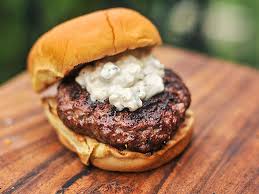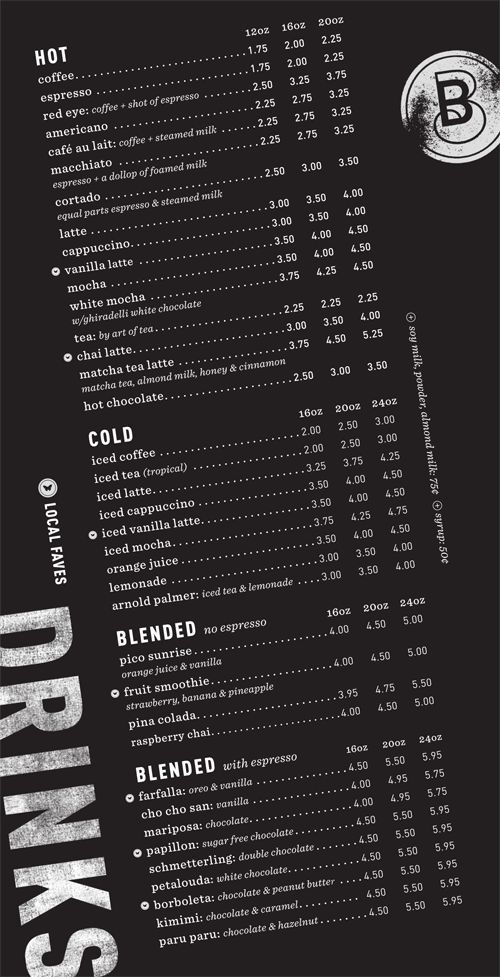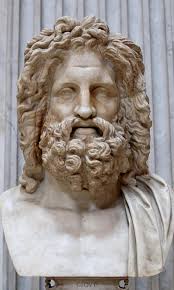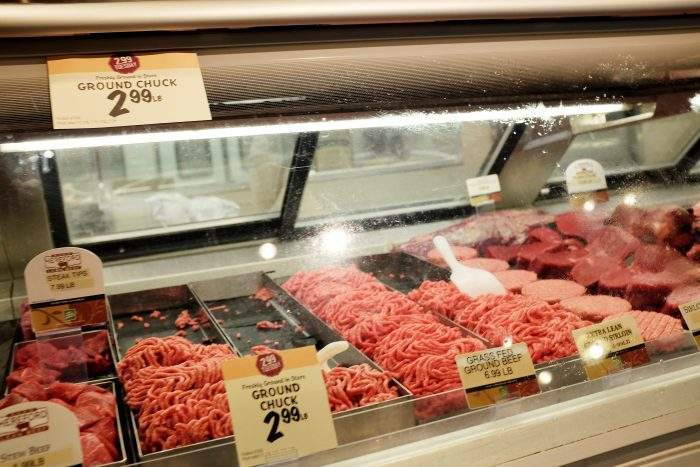Why not the first Pre-Lenten Epistle? Because it says nothing about fasting, since the first week of Pre-Lent omits the Wednesday and Friday Fast. If you’re reading this Post immediately after it’s published, there’s still time for a Friday cheeseburger! Hurry! If you don’t like  cheeseburgers, you should come and try one the way my wife makes them: not greasy, crisp on the outside, well done but juicy on the inside. Mmm… (Where were we? Oh yes:)
cheeseburgers, you should come and try one the way my wife makes them: not greasy, crisp on the outside, well done but juicy on the inside. Mmm… (Where were we? Oh yes:)
After that, in typical Orthodox style, the Church eases us step by step, week by week into the Great Fast. So for those three Sundays the Church Fathers picked Epistles to help us prepare. They cover several topics. We’ll look at what they say about fasting. They do need some explaining because Saint Paul was speaking to First Century issues, but from each of them we can take an important lesson or two.
Second Pre-Lenten Sunday
I Corinthians 6:12-20
So you walk into your local grocery story, go over to the meat counter, and the packages are labeled: “This meat has been offered to the god Zeus.” Should you buy it or not? OK, this is not likely to happen… but this was a big issue in the First Century. Most meat came from animals that had first been sacrificed to the gods, then sold in the market. Should Christians eat it? Would that be selling out the Faith?
There was also another issue: Some Jewish Christians were insisting that all Christians should keep Old Testament Law: fasting on Mondays and Thursdays, and no pork and so on. (I’m not a big meat eater, but no bacon …?! Why am I so obsessed with meat? Because Lent is coming, that’s why. You vegetarians, please forgive me.)
…?! Why am I so obsessed with meat? Because Lent is coming, that’s why. You vegetarians, please forgive me.)
It sounds as if when Paul had visited (or perhaps written to) Corinth earlier he had told them that they needn’t keep Old Testament fasting Laws, that God had created all things good, and that idols have no true existence, explaining that “God made the stomach for food and food for the stomach”, so enjoy His good gifts.
As you’ll remember from our summer readings, if the Corinthians could mess something up they would – and apparently they had done it again. They had been using Paul’s words as an excuse for gluttony, self indulgence. If pork is OK, let’s pig out! If drink is good, Hey, buddy, have another one!
No, no, Paul is writing back to them, that’s not what I meant. And this is the first lesson the Fathers want us to take for Lent: “All things are lawful for me, but not all things are helpful. All things are lawful for me, but I will not be brought under the power of any. Food was made for the stomach and the stomach for food, but God will destroy them both.”
Herein are four principles:
1 All things are created by God and are good for us – when used properly.
2 All things are lawful. Our Orthodox Fasting rules are not laws. They are guidelines. We have never had any of this “eating meat on Friday is a mortal sin” * stuff. Adultery is sinful. Eating meat during Lent is neither sinful nor illegal. It’s just not “helpful”, to quote Saint Paul. We’ll talk about how fasting is helpful later in this article.
- or is it now venial? or is it now neither? It has been hard to keep up.
3 It is “helpful” from time to time to set aside some good things, some good food, some good activities in order to concentrate on what is better and what is best, on God and people.
4 All things if misused can become demonic, so that instead of our using them, they begin to use us. Instead of our controlling them for our purposes, they enslave us. Or rather the Evil One uses them to enslave us. The most obvious examples are drink or drugs. But even food can enslave us, so that instead of eating to live, we live to eat. That’s the sin of Gluttony. We have been set free in Christ. We must not lose that freedom.
Gluttony, by the way, isn’t just eating too much, though that is a big problem today. About 70 million people in America are now considered obese. Look around. But Gluttony can also consist of centering our lives on our stomachs or being excessively fussy about food. (See Blog Post 93.)
Back to Paul’s first point: Food in and of itself is good, the gift of God. There is a reason why the central worship service of the Church includes Eating and Drinking, and why our great Holy Days are called “Feasts”. Our post-Liturgical Sunday social hours at church  and our parish dinners and get togethers – all these build community and draw us together. Right: Cedarburg’s Java House where we hang out and talk endlessly after weekday Matins. This is theological: The Church is the Body of Christ, and Orthodox people are the Church, and Christ is present in them. However, we must not make food and our stomachs the be all and end all, for finally “God will destroy them both.” Food is not what life is all about. Fasting helps us remember that.
and our parish dinners and get togethers – all these build community and draw us together. Right: Cedarburg’s Java House where we hang out and talk endlessly after weekday Matins. This is theological: The Church is the Body of Christ, and Orthodox people are the Church, and Christ is present in them. However, we must not make food and our stomachs the be all and end all, for finally “God will destroy them both.” Food is not what life is all about. Fasting helps us remember that.
Third Sunday of Great Lent: Meatfare Sunday
Epistle: I Corinthians 8:8 – 9:2
Saint Paul says, “Food does not commend us to God; we are neither better off if we eat or worse off if we don’t.” Hardly an encouragement to fasting! But here Paul is writing about the dangers of fasting.
Paul wrote at a time when almost everybody understood fasting. Whether they all practiced it, who knows? but he didn’t have to explain it to them. So his point for people who fasted is this: Beware. There is no moral virtue in fasting. As if we’ll come to the Last Judgment, and Jesus will say, “Wow! You didn’t eat meat. I’m so proud of you. Come on in!” I don’t think so.
Almost all religious people have fasted. I think ours is the only culture in history where most people think spiritual fasting is absurd. To lose weight? Yes. But as a way to approach the holy God? No. As a way to gain self-control? No. Maybe this is because we who have so much can scarcely bear to give up any of it – we who are so seriously into our delectable meals, so concerned about pleasing our palates. The other day at the coffee house I looked at the gazillions of options for coffee and remembered how “back in  the old days” there was one choice: “A cup of coffee, please”. And then I ordered my “medium cappuccino, skim milk with lots of foam, please”. Would it help me during Lent to prove to myself I don’t really need that? Yes, this is a “little thing”, but… read Luke 16:10-12.
the old days” there was one choice: “A cup of coffee, please”. And then I ordered my “medium cappuccino, skim milk with lots of foam, please”. Would it help me during Lent to prove to myself I don’t really need that? Yes, this is a “little thing”, but… read Luke 16:10-12.
So here’s what most people today don’t understand about fasting for “religious” reasons:.
The Purpose of Fasting
Fasting helps us get in shape –  like baseball’s spring training. Left: Look, the saints and angels are in the stands watching you. We practice using something that is not morally harmful, food and drink, so that we will be strong when we’re tempted in greater matters – to rob banks, or by our neighbor’s wife, or to join forces with the devil who is “the liar and the father of lies”. (I’m going to have a lot to say about that on Thomas Sunday.) Do we have the willpower to keep up the Fast till Pascha?
like baseball’s spring training. Left: Look, the saints and angels are in the stands watching you. We practice using something that is not morally harmful, food and drink, so that we will be strong when we’re tempted in greater matters – to rob banks, or by our neighbor’s wife, or to join forces with the devil who is “the liar and the father of lies”. (I’m going to have a lot to say about that on Thomas Sunday.) Do we have the willpower to keep up the Fast till Pascha?
Fasting helps us get our big egos out of the way. I do not always have to have what i want.
Fasting helps us enter into the spirit of this penitential season, for “the way to our heart is through our stomach.”
Fasting helps us identify with Christ who sacrificed for us.
Fasting helps us identify with people who must go hungry. In 2018 about 820 million people in the world hadn’t enough to eat, and the number is increasing again. About 3.1 million children die each year from malnutrition. Over twelve million children in the United States do not have enough food. Just statistics? It wouldn’t be if it was your kid. While most of us stuff our faces.
Fasting, eating less and more simply, not going out to eat, not paying $3 for a cup of coffee – this allows us to save some money to give away. My Antiochian Archdiocese provides Lenten coin boxes, so we can give to the Archdiocese Food for Hungry People program. (I hope yours does something similar.) So during Lent give more to the needy, maybe through International Orthodox Christian Charities?
Fasting helps draw us together as a Church community. We fast together. We go a little hungry together. We give to the poor together. And at Pascha we will feast together – often with a h u g e potluck meal in the parish hall in the middle of the night after Divine Liturgy. Here we modern Christians could learn from the Muslims.
So, now, let’s go on to what the Epistle is really about:
The Dangers of fasting.
Fasting is not an end in itself. It is only the means to an end. Actually three ends: Self control. Love of God. Love of people.
So if you give up meat and don’t try to give up sin, your fasting will do you more harm than good. As a Pre-Lenten hymn says “If you fast without giving up sin, you become just like the demons who never eat at all”! If you fast without praying more, forget the fasting. You’re missing the whole point. Spiritual growth depends on prayer and fasting. If you fast without giving more time to your loved ones, don’t bother to fast. If you fast and spend Lent judging others, you’d be better off not fasting. (This coming Sunday is the Sunday of the Publican and the Pharisee. Please take note.) If your fasting makes you proud of yourself, then quick: Eat some meat! Pride is worse than breaking the fast. But then of course go back to the fast.
Back to the Epistle: What if there is some Christian whose faith is weak, who  believes in the power of Zeus, who believes eating meat sacrificed to idols is immoral. And what if he sees you eating such meat and he concludes that you believe in Zeus, and therefore it must be OK for him to worship Jesus and Zeus also. Or maybe another person is a potential Christian, who sees you eating such meat and concludes that Christians must be fakers.
believes in the power of Zeus, who believes eating meat sacrificed to idols is immoral. And what if he sees you eating such meat and he concludes that you believe in Zeus, and therefore it must be OK for him to worship Jesus and Zeus also. Or maybe another person is a potential Christian, who sees you eating such meat and concludes that Christians must be fakers.
In that case, even though you have not been idolatrous, you have misled your weak brother, and therefore you have sinned against Christ who loves him. What matters here is not the theological principle: “Ha! I know Zeus isn’t real and you don’t. I’m right and you’re wrong. I’m smart and you’re stupid”. (Too much religion functions like that, including among us Orthodox who can sometimes “use” our Faith so arrogantly.) What matters is love, love for your brother and sister. Therefore, says Paul, even though eating meat offered to the gods is no problem, “if meat makes my brother stumble, then I will never again eat meat”.
Here is one contemporary possibility, among many: Maybe you don’t need to fast. Maybe you don’t need training in self-control. Maybe you already give much to the hungry. Maybe you are so united with Christ in His sacrifice that you don’t need any reminders of Him. Maybe you’re beyond that. Maybe you don’t need to fast. But others of us are not as strong as you, and we feel the need to fast. So if during Lent we see you about to eat let’s say a cheeseburger… then out of love please don’t do it! don’t offend us weaker brethren, so that we who look up to you might be tempted to follow your example and give up the Fast. At least for our sake, we who are weak, please keep the Fast. Please.
Fourth Sunday of Pre-Lent
Romans 13:11-14; 14:1-4
At the end of this Epistle here come the meat market and Old Testament fasting issues again. Not all agreed with Paul, so here out of charity he makes room for them: “One may eat all things, another only vegetables. Let neither despise the other or judge him whom God has received. Who are you to judge another’s servant? He answers to his own Master. God is able to make him stand.”
Here’s the Church Lenten message: Some Christians keep the Fast, others don’t. It is not your business or mine whether others fast or not. So if you fast (and please do) do not judge those who don’t fast as slackers. And likewise those who don’t fast must not judge those who fast strictly as legalistic show-offs. For the other person is not your servant. He answers to God, not to you, and it is for God to judge him, not you.
Here’s how the Church applies this principle: No one is excluded from membership in good standing in the Church for not fasting. For adultery yes, for murder yes, for denying Christ yes. But not for eating meat during Lent. So it is not our business to deny the judgment of God’s Holy Church which “makes him stand”.

Now, with these words of encouragement and advice and warning about fasting, are you ready? This first week of Pre-Lent: no fasting. Second week: regular fasting. Third week: no more meat. And after the Fourth Sunday, into the Great Fast we will go!
A blessed Fast to you all.
Next Week: What does the Church teach about what happens to us after we die?
Week after next: We conclude the series on The Divine Liturgy with The Anaphora of Saint Basil the Great

Actually, our culture doesn’t understand fasting to lose weight either. Yes, it’s becoming more popular these days, but I belong to a community of people who fast for health reasons, mostly weight loss, and people who are willing to discuss it with their friends and relatives (a lot of people refuse to even discuss it because they know the reactions they will face) always get a lot of “aren’t you starving yourself??!” pushback.
Thanks, Theresa. That’s so sad.
I find fasting to be so difficult, especially at work. Once a month on Wednesday, the office purchases lunch for the staff, generally consisting of pizza or Chick-fil-A. So, they see me eating what ever I brought and ask me why I don’t eat the free stuff. A few of my co-workers now know I’m Orthodox and understand. But it feels a little prideful, you know? I’m not sure how to handle this situation, which will become even more difficult to avoid during Lent.
Gee, I wish you hadn’t asked me that question! so I asked my wife and SHE said: You shouldn’t feel prideful about this. After all there are many vegans these days, so people shouldn’t be shocked. If anyone should be curious just say “I’m an Orthodox Christian. We fast on Wednesdays” – a quiet witness for the Faith. After all Muslims fast during Ramadan without making any secret of it, and people seem to be impressed by it – though they would never do it themselves! I think my wife gave good advice, as usual.